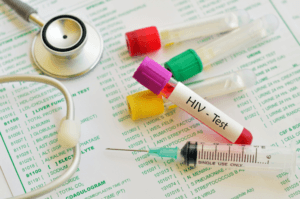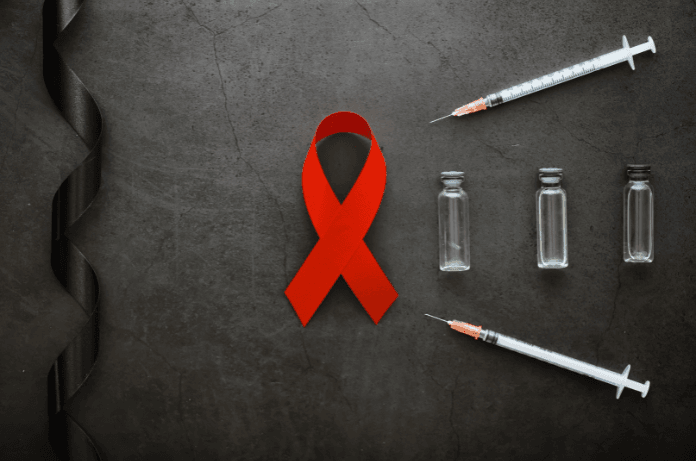The fight against HIV has seen a major advancement: a twice-yearly injection that shows remarkable efficacy in preventing new infections. The results of a Gilead-funded Phase III clinical trial, conducted across multiple sites, including Emory University and Grady Health System, reveal that Lenacapavir, an injectable antiretroviral, reduces the risk of HIV infection by 96%, significantly outperforming daily oral medications like Truvada®.
The findings, recently published in the New England Journal of Medicine, herald a potential revolution in HIV prevention strategies, especially for underserved populations who have difficulty adhering to daily oral medication regimens.
The Promise of Lenacapavir
For years, daily oral PrEP (pre-exposure prophylaxis) medications such as Truvada® have been the gold standard in HIV prevention. These medications lose efficacy when doses are missed, despite being highly effective when taken consistently. It’s a common challenge for many patients. Dr. Colleen Kelley, lead author of the study and professor at Emory University’s School of Medicine, highlights this adherence issue, stating, “About half of people who start taking daily oral PrEP stop within a year due to various factors. Seeing these high levels of efficacy—at almost 100%—in an injectable that people only have to take every six months is incredible.”
In the double-blind, randomized trial, 99% of participants in the Lenacapavir group remained HIV-free, with only two infections reported among 2,179 participants. In stark contrast, nine new HIV infections were recorded among the 1,086 participants in the Truvada® group. The results are significant because they emphasize that not only is Lenacapavir effective, but it also offers an alternative to those who may struggle with the consistency required for daily oral PrEP.
Adherence rates to Lenacapavir were notably higher compared to daily oral PrEP, underscoring the convenience and practicality of biannual injections, especially for individuals in environments where daily pill-taking can be challenging. The injectable medication could prove to be a game-changer for people who have difficulty managing their health routines.
Addressing Healthcare Disparities
The significance of this trial extends beyond clinical outcomes; it also shines a spotlight on healthcare disparities. The trial was intentionally designed to include a racially, ethnically, and gender-diverse cohort. The study included cisgender men, gender-diverse individuals, and participants from regions such as South America, South Africa, Thailand, and the United States. This diversity ensured the study was representative of populations that are disproportionately affected by HIV in the real world.

According to Kelley, “We are not reaching everyone we need to reach with our current HIV prevention interventions, such as those who are disproportionately impacted by HIV and healthcare disparities.” The study also reveals a striking statistic: more than half of the new HIV infections in the U.S. in 2022 occurred among cisgender gay men, with 70% of those cases affecting Black or Hispanic individuals. These figures highlight the urgent need for innovative prevention tools that cater to marginalized groups.
By ensuring that the study represented the communities most at risk, the research also points to an unmet need for accessible, equitable HIV prevention methods. Many people from these vulnerable groups struggle with healthcare access and the ability to maintain a daily medication routine. Lenacapavir’s biannual regimen could serve as an effective solution to these challenges.
Grady’s Role in Equitable Research
At Grady Health System, a long-standing commitment to healthcare equity ensured that the research team prioritized the inclusion of underserved and minority populations. Dr. Valeria Cantos, principal investigator for the clinical trial at Grady, emphasized the importance of trust in medical research, particularly among communities that have been historically neglected or harmed by healthcare institutions. “Grady is an established, trusted research site because of its commitment to equity,” she stated.
The team took extra steps to ensure accessibility for Spanish-speaking participants, offering materials in Spanish and enlisting bilingual staff to facilitate recruitment. These efforts ensured that participants from diverse linguistic backgrounds could engage in the study without additional barriers. Dr. Cantos’s focus on inclusivity highlights Grady’s dedication to supporting populations that would benefit most from an effective HIV prevention intervention like Lenacapavir.
Looking Ahead: Approval and Accessibility
As the Phase III clinical trial has been submitted to the FDA for consideration, experts are hopeful that Lenacapavir could be approved by 2025 for commercial use. If approved, Lenacapavir’s biannual dosing schedule could make it a crucial tool in the global fight against HIV, particularly for those unable to adhere to daily oral medications.
Dr. Carlos del Rio, chair of the Department of Medicine at Emory University, sees Lenacapavir as a critical addition to the armamentarium of HIV prevention tools. “The challenge is now to roll out and make these tools available and accessible in an equitable way—only then will we see new HIV infections dramatically decreased locally and globally.” His statement underscores the importance of ensuring equitable access to this promising new treatment.
Revolutionizing HIV Prevention
The success of Lenacapavir represents more than just a medical breakthrough—it is a testament to the power of inclusive, innovative research. For populations disproportionately affected by HIV, this biannual injectable could be a vital solution, bridging gaps in healthcare access and adherence. With approval on the horizon, the next step will be ensuring that this life-saving tool is available to those who need it most, potentially turning the tide in the fight against HIV.
This groundbreaking advancement offers new hope for people who face significant barriers to consistent healthcare, particularly those in marginalized communities. The development of Lenacapavir is a crucial milestone in the ongoing battle against HIV, and its potential to dramatically reduce infections globally is a powerful reminder of the importance of accessible, effective medical solutions.

